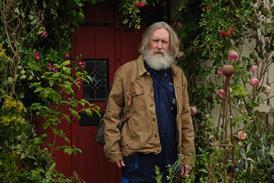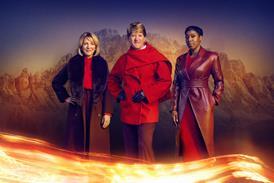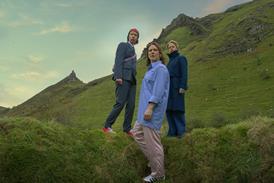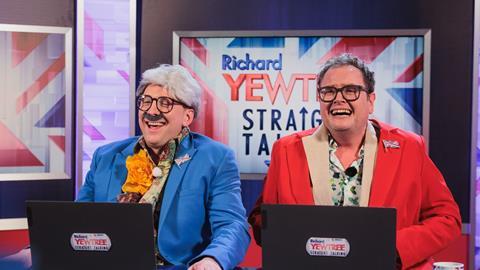The industry and the audience would both be worse off if the rise of streaming makes live shows a thing of the past
What I love most about British television is how unpredictable it is. As tastes change all the time, you don’t know exactly where viewers are going to head next. A quirky programme in a late-night slot can become a national obsession, while a new, expensive, hotly tipped primetime drama dies on its arse.
Many broadcasters predicted that the public would want light relief in the aftermath of the pandemic, only for the most watched shows to feature some of the darkest topics imaginable (Hello, The Last Of Us! Hello, Squid Game!).
And while the internet and our streaming habits have resulted in live viewing falling by nearly 10% since 2020, one of the most exciting TV programmes of late has been live, thanks to comedian Joe Lycett.
Late Night Lycett was a five-part Channel 4 chat show broadcast live from Birmingham. Joanna Lumley, Alison Hammond and David Harewood were among the guests. The format was hardly revolutionary, but what was so compelling was the unpredictable nature of it. Lycett brought along his aunts to ask the celebrity guests questions. He got Natalie Cassidy and Claire Sweeney to work in a local shop simply to source the guests’ booze.
In a GB News spoof, celebrities were forced to read an autocue containing incredibly right-wing talking points, but had no idea what they were about to read out (“I quite liked having a career,” said Alan Carr. “Bye career. Bye!”). And a dog called Linda Biscuits was one of the camera operators (she was fired after taking a whiz on the set).
The show was frantic, chaotic and a nostalgia fest for those who grew up watching TFI Friday and The Big Breakfast in the 1990s. Yet, even though Late Night Lycett was paying homage to earlier shows, it also felt fresh and modern. This was down to its inclusivity – it was a celebration of what it means to be queer. And unlike some of the risqué late-night shows of old, the comedy didn’t punch down.
“Live television always brings extra excitement and tension – an unrehearsed line might come out funnier than anything in rehearsals”
It is also evident that Late Night Lycett wouldn’t have worked if it wasn’t live. Live television always brings extra excitement and tension – an unrehearsed line might come out funnier than anything in rehearsals and, of course, there’s the knowledge that (much to the joy of viewers and the fear for producers) everything could go wrong and the show could fall on its arse.
Pre-recorded television can be a comfort to producers, but there’s always the temptation to keep re-recording lines and segments over and over until it all sounds the way they want it to, rather than how it spills out. That often results in seemingly endless records, sucking all the energy out of a show and tiring out the talent, the audience and everyone else involved.
Yet despite the acclaim for Late Night Lycett – which opened with 1 million viewers (11%), comfortably ahead of the 880,000 (8.4%) slot average – you can’t help but wonder whether live television is on the way out. While broadcasters will always cover live events, such as the upcoming King’s coronation, director general Tim Davie has suggested broadcast TV channels could be switched off in the next decade to make way for a “tailored online offer”.

With streaming habits still mostly reliant on an audience watching when it suits them rather than according to schedule, would broadcasters feel as compelled to make live studio programmes if channels themselves were no longer a priority? It’s entirely possible that such formats could soon be consigned to the bin.
That would be a shame – and potentially a rather short-sighted decision. Remember, British television thrives on unpredictability, and live is one of the things that differentiates it from the streamers Pulling something prematurely would be bad for TV, bad for viewers and, of course, bad for Linda Biscuits.
- Scott Bryan is a media journalist, presenter and entertainment critic






























No comments yet